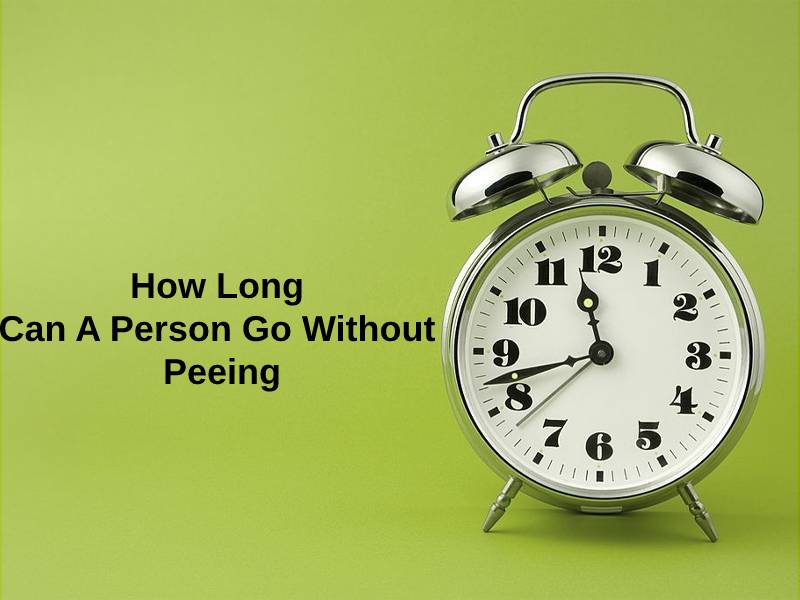Exact Answer: Five To Ten Hours
Peeing medically termed as urination is the natural process of discharge of urine from a body. Urine is stored in the urinary bladder and travels through the urethra, and is released outside of the body. Other medical names of peeing are voiding, micturition, emiction, or enuresis. More familiar names are pissing or weeing.
A healthy human being or animal urinate up to seven times a day. In a healthy individual, the process of urination is under self-control. However, newborn babies and some older people cannot voluntarily control urine discharge, and urination occurs as a reflex.

How Long Can A Person Go Without Peeing?
Peeing is an essential process and should be done regularly to have a good physical balance. Urination needs coordination between the autonomic, central, and somatic nervous systems. The pontine micturition center, the cerebral cortex, and periaqueductal gray are the brain centers responsible for urine regulation. Males use their penis to urinate. On the other hand, females urinate through the urethral opening present in the vagina. The urine is stored in the urinary bladder for some amount of time before it is required to remove it from the bladder.
Urine consists of about ninety-five percent water, and the remaining percentage is made up of waste products. Nephrons present in the kidneys help process the blood and create urine through reabsorption, filtration, and secretion. Multiple nitrogenous wastes are excreted through the urine, such as creatinine, urea, uric acid, and ammonia. Reabsorption is regulated by hormones that control water and sodium transportation depending on an individual’s physical conditions.
| Age Group Of an Individual | Maximum Duration Without Urination |
| Children or individuals below the age of 12 | Five to six hours |
| Individuals aged 12 or more | Nine to ten hours |
The maximum duration that an individual can go without peeing depends on the age group in which the individual falls. Children below the age of twelve have an underactive bladder and can control their pee for a maximum of six hours. However, individuals aged twelve or more have a healthy bladder and can handle the urine flow for a maximum of ten hours.
Why Can A Person Go Without Peeing For That Long?
As an individual starts growing up, he/she starts gaining more and more control over their urinary bladder. That’s why a person with a healthy bladder can control urination for so long. However, as a person grows older, the body starts losing control over the urinary bladder and may urinate at varying times. This is seen in more aged people suffering from kidney disease. If an individual cannot control the urine flow voluntarily, then there are multiple medications available in the market to help the person overcome this condition.
It has been found that drinking a lot of water results in urination at a shorter time. Intake of alcohol and caffeine also speeds up the urination rate. Not only this infection in the urinary tract or the bladder also leads to regular urination. However, during the night period, the body produces a significantly less amount of urine. As a result, an individual can sleep peacefully without waking up at regular intervals for urination.
If a person needs to urinate more than twice at night regularly, then the person might be suffering from nocturia. Dehydration is one of the major causes of delayed urination. If a person’s body doesn’t contain the required amount of fluids, then the urinary bladder cannot produce urine properly. Persistent urine discharge might be caused because of excess fluid intake. However, if a person is taking fluids regularly and still cannot urinate for very long, it is advised to consult a medical expert.
Conclusion
Overall, it can be concluded that urination is a process that is done regularly by a healthy individual. The urinary bladder is responsible for the production of urine. Urine consists of water and waste products. A higher amount of fluids in the body lead to more frequent urine discharge. Dehydration results in less production of urine.
On average, an individual can control the urine flow for five to ten hours, depending on the individual’s age group. Children urinate more than adults as they an underactive bladder in contrast to a healthy one that an adult has. Uncontrolled urination might cause few problems, and it is good to seek medical attention in such cases.